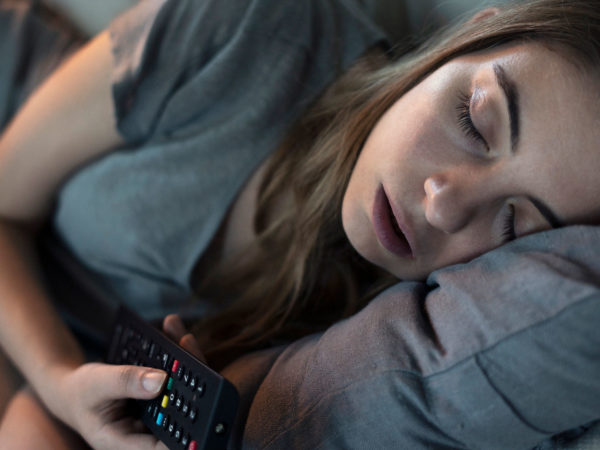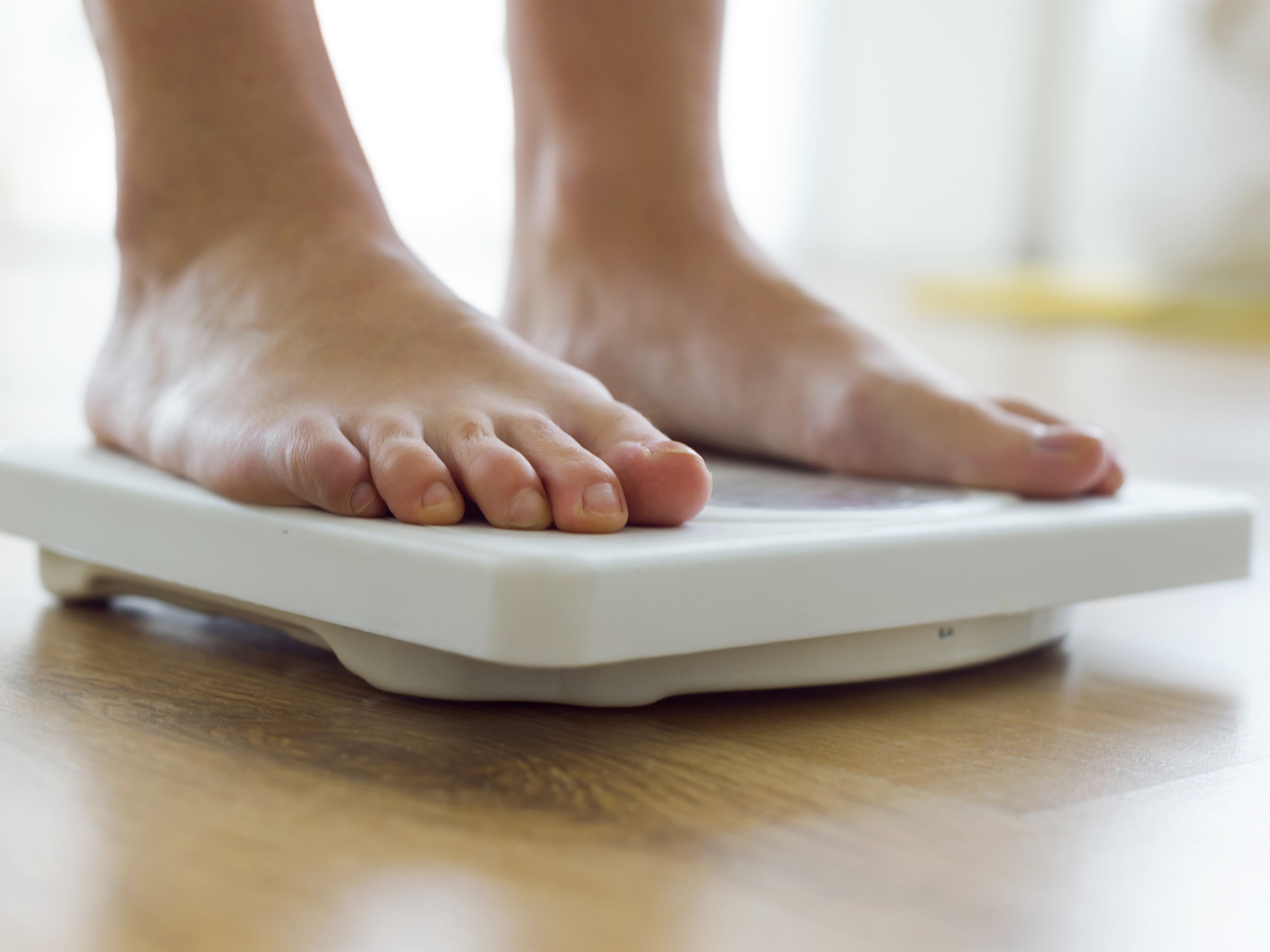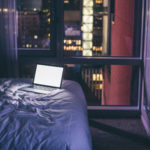Does Light At Night Cause Obesity?
I was disturbed to hear that leaving a TV on in the bedroom at night can cause women to gain weight. Is this true?
Andrew Weil, M.D. | July 19, 2019

Maybe. A study from the National Institutes of Health published in June 2019 found an association between exposure to artificial light at night while sleeping and weight gain in women. (The study didn’t include men.) The researchers used information gathered from 43,722 women between the ages of 35 and 74 who already were participating in a study looking at risk factors for breast cancer and other diseases. The participants provided information about their weight, height, waist and hip circumference and body mass index. None were shift workers, slept during the day, or had a history of cancer or cardiovascular disease when the study began. They were asked whether they slept with no light at all, a small nightlight, light coming from outside the bedroom, or a light from a television left on in the room. Nearly six years later, the women updated the information about their weight and body mass index.
Analysis of the results showed that using a small nightlight wasn’t linked to weight gain but revealed that women who reported sleeping with another light or television on in the room were 17 percent more likely to have gained 11 pounds or more over the study’s five-plus years. The investigators reported that light coming from outside the room was linked to more modest gains.
The study didn’t prove that light in the bedroom was the cause of the weight gain – it showed only an association between the two. Study co-author Chandra Jackson, Ph.D. noted that exposure to artificial light at night may alter hormones and other biological processes in ways that raise the risk of health conditions such as obesity.
Light at night appeared to affect weight regardless of how long the women slept – less than seven hours (which isn’t enough) or seven to nine hours (which is). I’ve previously reported on evidence suggesting an association between exposure to artificial light at night and an increased risk of breast cancer. The last scientific word on this came from a long-term study by researchers at the Harvard T.H. Chan School of Public Health who looked at data from nearly 110,000 women participating in the Nurses’ Health Study II from 1989 to 2013. They concluded that certain women exposed to the highest levels of outdoor artificial light at night had an estimated 14 percent increased risk of breast cancer compared to those with the least exposure.
If you’re concerned about the impact of light at night on your risk of weight gain and breast cancer, try to sleep in a room that’s as dark as you can make it.
Andrew Weil, M.D.
Source:
Yong-Moon Mark Park et a, “Association of Exposure to Artificial Light at Night While Sleep with Risk of Obesity in Women,” JAMA Internal Medicine, June 10, 2019, doi:10.1001/jamainternmed.2019.057












